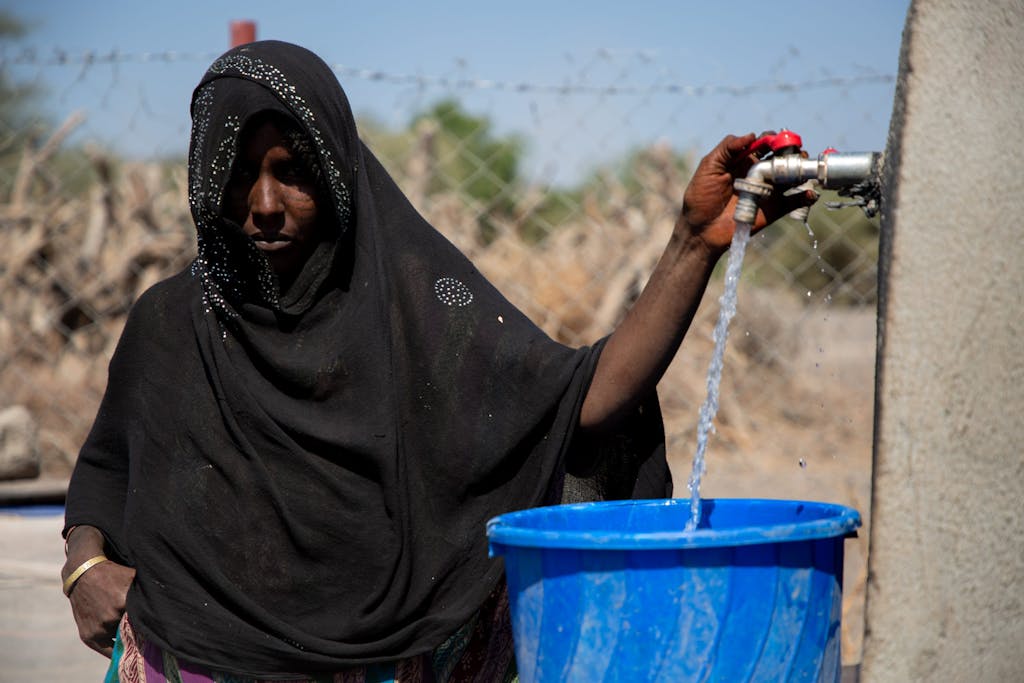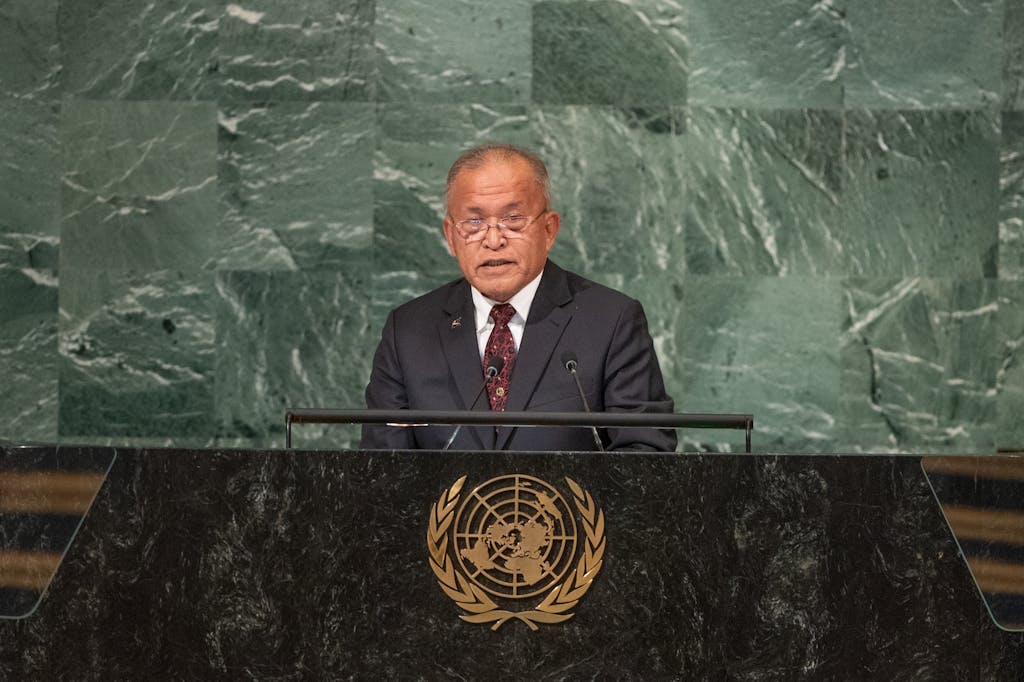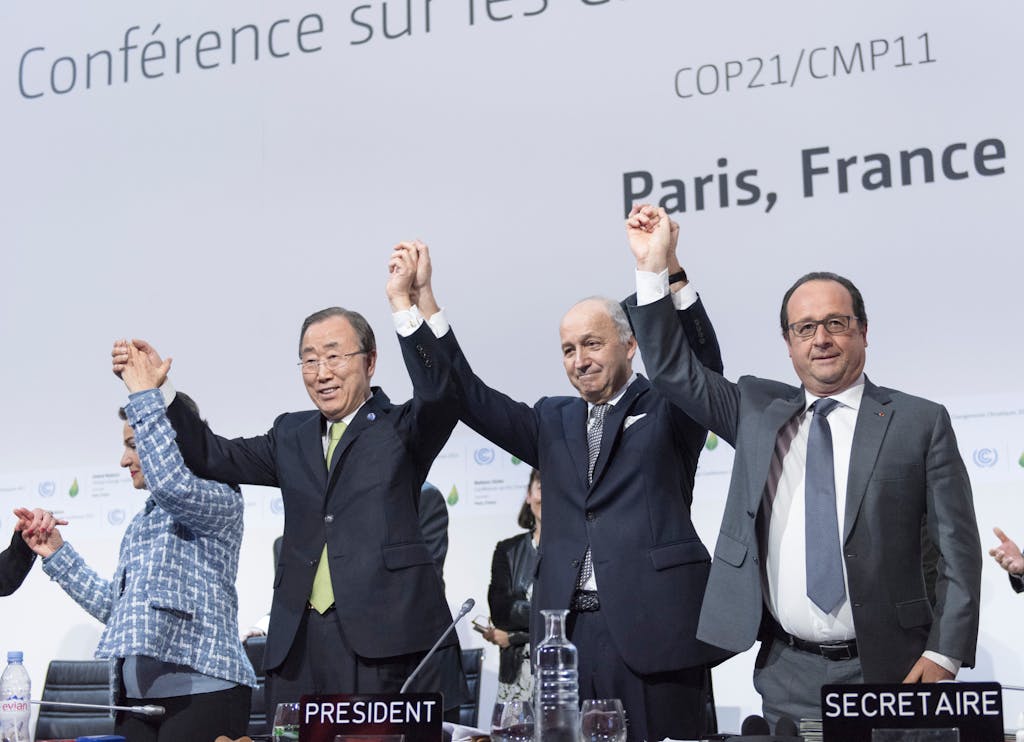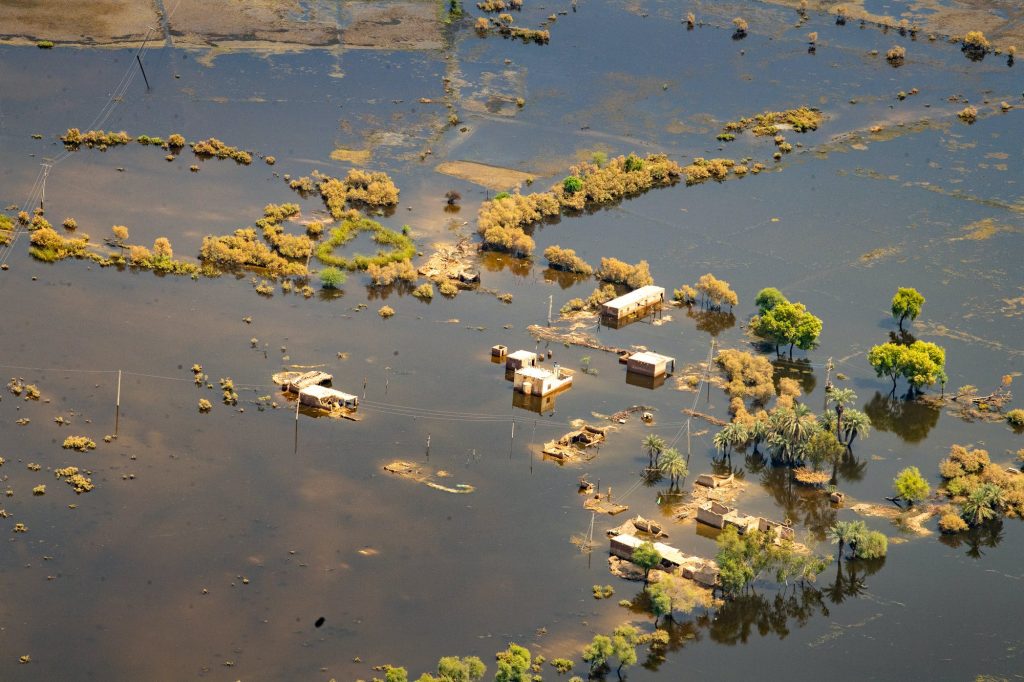
Floods inside the provinces of Sindh and Balochistan in Pakistan. Many lives have been misplaced and hundreds of hundreds misplaced their homes, with one-third of the nation submerged. UN photograph/Eskinder Debebe
forward of the subsequent United Nations local climate convention, typically recognized as COP 27, the UN basis’s Fellow for worldwide local climate coverage and Diplomacy, David Levaï, explores critically very important questions: How ought to we pay for damages launched on by local climate change, and what goes to it take to finance the adjustments needed to adapt to a warming world?
question: As we see many occasions yearly all by way of the world, local climate change is unleashing catastrophic and worsening storms, wildfires, flooding, and fully different disasters. Who at the second pays for such harm?
David Levaï: that is an very important question to know, as a consequence of many actors contribute funding counting on the style of harm. Humanitarian assist is the foremost to reach in emergency situations inside the style of worldwide public assist and philanthropic organizations that assist and assist the affected inhabitants. however humanitarian assist is usually restricted and doesn’t have in thoughts local climate change-associated disasters which might even be sluggish-onset occasions, similar to rising sea ranges, the retreat of coastlines, or impacts from deforestation. In these situations, funding should come from fully different entities.
fully different compensation mechanisms, similar to insurance coverage, exist for local climate change-associated occasions. however to be efficient, they should current important safety, which simply isn’t typically the case in susceptible nations. How the insurance coverage commerce responds to a catastrophic event poses extra questions. as an event, inside the case of investing in reconstruction, will an insurance coverage agency have in thoughts the constraints and realities of a altering local climate and assist drive new practices and behaviors? Or will it rebuild precisely the most interesting means issues have been, exposing residents to repeating disasters?
The time period “local climate finance” refers to all of the investments important to transition to a internet-zero economic system, which means internet-zero carbon emissions. however does it additionally cowl fully different dimensions, similar to adapting to our altering world?
sure, local climate finance covers the investments needed to change to much less polluting power methods, industrial methods, and transportation methods. nonetheless it additionally contains adaptation finance — that is, how can we fund the transformation important to minimize again the human and environmental prices of local climate change and construct resilience to new situations? How can we anticipate and make adjustments so as that buildings and transportation can elevated face up to greater disasters? so as that agricultural manufacturing simply isn’t on the mercy of rising warmth or water scarcity? How can we assist transformational change in areas and communities whose income sources will shrink as a consequence of the local climate adjustments? A course of at COP 27 goals to double funding for adaptation and resilience to better than $forty billion by 2025, nonetheless it is nonetheless unclear the place this enormous pool of money will come from. a important subject is the most interesting reply to encourage the private sector to fund adaptation actions that do not produce speedy return on investments, similar to serving to farmers transition from an at-hazard exercise to extra resilient practices.

Intense warmth and extreme drought are impacting hundreds of hundreds all by way of the world. In Ethiopia, Fatuma walks 10 kilometers every day to the closest water level after the moist season ends. photograph: Raphael Pouget / UNICEF
Then there might even be finance to cowl losses and damages ensuing from a altering local climate, which entails reconstruction after disasters, as effectively as to compensating international places and communities for shrinking income sources, as an event, coastal villages whose economies rely upon fishing in areas the place fish species are dying off or migrating as a consequence of fixing ocean temperatures and acidification. pretty a quantity of delegates from creating economies are going to the COP eager to converse about local climate impacts and the losses and damages they induce. We should construct new monetary mechanisms to assist communities on the receiving finish of catastrophes, and most important, ship on pledges to current that vital funding.
“We should construct new monetary mechanisms to assist communities on the receiving finish of catastrophes.”
David Levaï
Fellow for worldwide local climate coverage and Diplomacy, UN basis
How will conventional finance paradigms should differ in coming years?
Our worldwide finance institutions have been created inside the wake of World battle II, in a second of disaster, to deal with vital progress wants in a particular nation, similar to a bridge in Senegal or an affect plant in India. as we converse, with local climate change, we want new fashions that handle collective and systemic factors which might even be occurring concurrently and are compounding every fully different. no matter funding selections are made now in a single nation might have an impression on fully different international places. So our worldwide monetary institutions should adapt to function in a extra holistic and fewer challenge-particular means. Reforming the construction of the worldwide monetary system simply isn’t up for negotiation at COP 27, nonetheless it would probably be extreme on the political agenda at a second when the international places that want most probably the most funding in transitioning to a carbon-free economic system are typically the least accountable for local climate change. These are additionally the international places that battle with extreme ranges of debt and expertise difficulties in accessing finance from capital markets, therefore the corrective mechanisms that the multilateral neighborhood developed collectively should raised take these factors into consideration.
What are the precept factors in local climate finance on the desk at COP 27?
First, there are 4 elements of the persevering with yr-to-yr negotiations:
1) In Copenhagen in 2009, developed economies pledged $one hundred billion yearly to assist creating economies to pay for mitigation and adaptation actions, nonetheless the latest numbers reveal a shortfall of round $sixteen billion. Addressing this hole inside the approaching years shall be a contentious a factor of the negotiations, with creating economies feeling they will’t notion developed economies to ship on their ensures.
2) As referenced earlier, there is a mandate coming out of COP 26 in Glasgow to double worldwide funding for adaptation to better than $forty billion a yr by 2025, however there might even be not but a clear road map for getting there. it will undoubtedly be under dialogue at COP 27.
three) Small Island creating States—which symbolize 38 international places out of the 198 which have ratified the UN Framework convention on local climate Change—as effectively as to many African nations, will proceed to push for the creation of a loss and harm fund, to assist them deal with worsening impacts of local climate change and their irreversible penalties.
4) In 2025, the pledge to current $one hundred billion yearly to creating economies will expire. a mannequin new monetary mechanism should be put in place at this level, nonetheless it is unclear what that will appear to be. Bringing the world to zero carbon emissions by 2050 would require ramping up funding and implementing means extra subtle finance mechanisms. what goes to international places want most probably the most? Is it debt forgiveness, or loans, or grants which might even be simply accessible and would possibly quickly create change on the underside? The problem shall be transferring from a technical dialog to setting a political imaginative and prescient, one which options the question, “What devices do now we should fund the transformation to a zero-carbon world?”

David Kabua, President of the Republic of the Marshall Islands, addresses the remaining debate of the remaining meeting’s seventy-seventh session, homing in on the menace to small island nations as a consequence of the planet continues to warmth and seas rise. photograph: Cia Pak / UN photograph.
collectively with the exact negotiations, the local climate neighborhood shall be focused on partnerships between G7 international places and massive economies similar to Indonesia, and Vietnam which might even be extremely reliant on coal-generated power. One event is the simply power Transition Partnership (JETP), which was initiated final yr when a quantity of international places pledged $eight.5 billion to assist South Africa in accelerating its transition away from coal. Since then, there was uncertainty about how this deal could be carried out, so we anticipate to see an in depth funding plan at COP 27 that lays out how this funding could be used and the most interesting means it would effectively assist leverage extra private investments. we’re additionally anticipating the announcement of three associated coal-transition partnerships focused on Indonesia, Senegal, and Vietnam and are desperate to take heed to the particulars.
How would possibly discussions of local climate finance be influenced by the placement of this convention, on the African continent?
Africa is a quick-rising area that has enormous wants when it entails progress. an limitless quantity of of us nonetheless do not want entry to power, which impedes well being care and extreme quality of life as effectively as to financial progress. however African international places are additionally aware of the disproportionate impacts that a altering local climate has on the continent when it entails agricultural manufacturing, entry to water, and regional battle, although their historic contribution to local climate change has been minimal. So on a continent that has always acquired the least quantity of worldwide funding and the place demand is the most interesting, getting finance proper is terribly very important.
what quantity of COPs have you ever attended?
Eight.
what’s your most memorable second?
most probably the most superb second I had the likelihood to dwell was the adoption of the Paris settlement after many months of effort and two weeks of sleepless nights. on the time, i used to be a factor of the French presidency at COP 21, working for the French authorities internet hosting the meeting. We had drafted the remaining iteration of the Paris settlement, which now needed to be submitted to 196 international places for approval by consensus. On Dec. 12, 2015, at 7 p.m., i believed the world had tipped over proper into a mannequin new period the place local climate factors would lastly be meaningfully addressed. When the gavel bought here down on the desk, all of the room — even most probably the most tough of opponents — jumped and cried and kissed every fully different.

World leaders have fun after the historic adoption of the Paris settlement on local climate change. photograph: UN photograph/Mark Garten
COPs have been taking place for better than 1 / 4 of a century. Is the glass half full or half empty?
It’s each — and it’s a twin actuality that now we should know. whereas you get to a COP, wants are extreme: people are dying; climate occasions are destroying communities and economies; expectations for change are enormous. on the identical time, the multilateral and multinational institutions now we have are imperfect. The COP is a consensus-based mostly course of by way of which all of the international places on the planet, collectively with Syria, North Korea, and Russia, should decide in a consensual method to maneuver one step extra. It’s like we’re in a race, all on a 196-particular person bicycle, and if simply one rider stops pedaling, you most likely can’t transfer forward. however nonetheless, you’re in a race! in case you watch that from the floor, it might even be very irritating.
When the Paris settlement was adopted, it was arduous to check that so many corporations and international places would have shifted as they’ve by now. The U.S. is, in spite of all the things, making sure it’s barely out of step; however in case you are taking a look at Africa, China, Europe, at investments: issues have taken an infinite flip. Change is drastic in contrast with the world we had earlier than 2015. nonetheless, we’re faraway from what should happen to sustain with our 2025 purpose of limiting temperature rise to 1.5°C over preindustrial occasions. as we converse, local climate finance has multiplied, nonetheless it is nonetheless decrease than fossil gas investments. Politicians are nonetheless tied to vested fossil gas pursuits which have been controlling their international places, and their politics, for many years. Are COPs the second to make all of it happen? I’m undecided. All fully different nationwide, regional, and worldwide institutions additionally should act accordingly. there might even be solely so a lot COPs can do. COPs are for taking inventory of how briskly the world is — or merely isn’t — altering. we ought to always set the bar as extreme as attainable however be ready for some disappointment. Consensus is usually mutually unsatisfactory.
extra ON COP 27
that is a factor of a collection, that contains views and ideas from UN basis’s local climate specialists on key local climate factors on the agenda at COP 27. make amends for information, occasions, and fully different content material on this collection.


